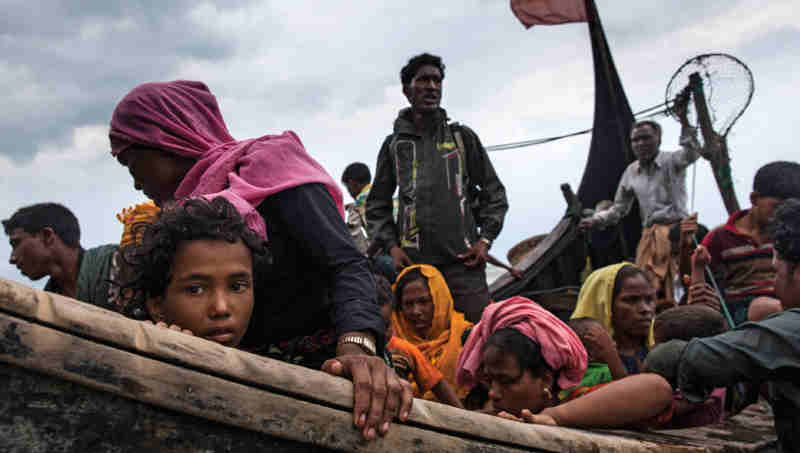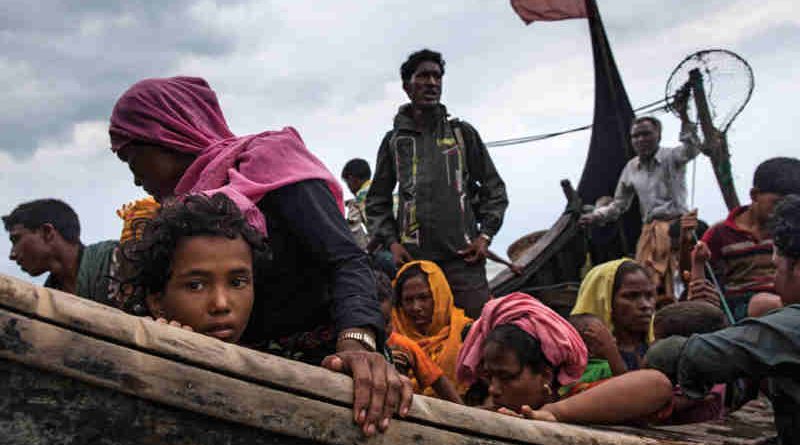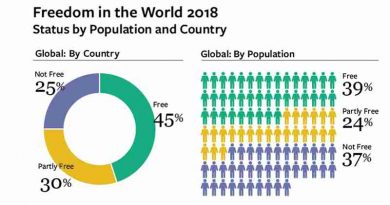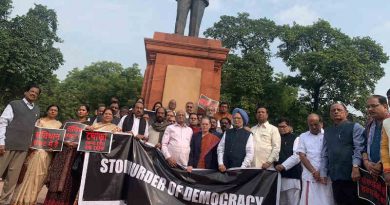World Leaders Call on Myanmar Dictators to Restore Democracy

Reports of internet shutdowns and other methods of communication in Chin State and other areas of the country are also troubling.
World leaders have reiterated their concern over reports of ongoing human rights violations and abuses by the Myanmar Security Forces across the country, including credible reports of sexual violence and torture, especially in Chin State, Sagaing Region, and Magwe Region.
The governments of Australia, Canada, New Zealand, Norway, the Republic of Korea, the United Kingdom, and the United States issued a joint statement on November 26 about the deteriorating situation in Myanmar.
In Chin State, it is reported the military has burned homes, churches and an orphanage in Thantlang village, and has targeted humanitarian organizations. More than 40,000 people are reported to have been displaced in Chin State and 11,000 in Magwe Region as a result of recent violence.
Reports of internet shutdowns and other methods of communication in Chin State and other areas of the country are also troubling. Communities impacted by violence need access to information to keep themselves safe.
In their statement, the governments said they are concerned about allegations of weapons stockpiling and attacks by the military, including shelling and airstrikes, use of heavy weapons, and the deployment of thousands of troops accompanying what security forces assert are counter-terrorism operations, which are disproportionately impacting civilians. “We also note our increasing concern at armed clashes in Rakhine State in early November,” the statement said.
The current situation and reports by the UN Special Rapporteur on the Situation of Human Rights in Myanmar raise acute concerns about the risks of future violence and atrocities across Myanmar, and what the international community can and should be doing to prevent such atrocities.
|
Use of Chapter VII of the United Nations Charter The UN and the office of UN High Commissioner for Human Rights have repeatedly failed to protect human rights of the citizens in different parts of the world. The casual statements and recommendations of the UN bureaucrats are being ignored by the rogue states which are supposed to follow them. In such circumstances, the world leaders must use Chapter VII of the United Nations Charter which specifies the UN Security Council’s powers to maintain peace. It allows the Council to determine the existence of any threat to the peace, breach of the peace, or act of aggression and to take military and non-military action to restore international peace and security. ~ Rakesh Raman |
“We welcome the Press Statement by the UN Security Council on November 10, which called for the immediate cessation of violence, protection of civilians, and full, safe and unhindered humanitarian access. We call for the respect of human rights and the immediate cessation of all human rights violations and abuses, and violence against civilian populations,” it was asserted in the statement.
To that end, the leaders urged the international community to suspend all operational support to the military, and to cease the transfer of arms, materiel, dual-use equipment, and technical assistance to the military and its representatives. “We encourage the international community to work together to prevent future atrocities in Myanmar, including by supporting justice and accountability for those responsible for atrocities,” the world leaders said in their statement.
The situation in Myanmar has an impact on regional security. “We reiterate our support for the ASEAN Five Point Consensus, noting in particular the call for a cessation of violence and for genuine engagement with ASEAN`s Special Envoy in leading inclusive dialogues aimed at peace,” the statement added.
Recalling the horrific violence perpetrated against Rohingya in Rakhine State in 2017, the leaders call on Myanmar Security Forces to immediately end the violence being perpetrated across the country. They also said they will continue to work closely with ASEAN, the UN and the wider international community to promote accountability and support a lasting resolution to the current crisis and a return to the path of democracy.






